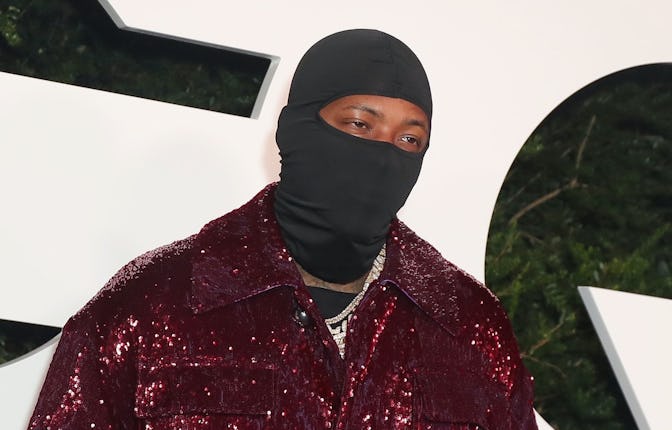Mandated or not, masking is our culture now
After two years of trauma, masks have become a coping mechanism — and a whole aesthetic.

This week, California, New Jersey, Oregon, Illinois, and other Democrat-led states across the country confirmed that they plan to drop indoor mask mandates as COVID cases begin to wane. In New York state, Governor Kathy Hochul allowed mask mandates to expire today, saying that it was “time to adapt” and quit covering up despite the CDC’s recommendations.
If you’re like me, you’re probably scratching your head: Weren’t we all hunkering down a month ago because of Omicron? And now we’re being told it’s okay to just raw dog air? I’m sorry, but it doesn’t work like that. I’m going to keep wearing my mask indoors because at this point, it’s become so much more than just a way of keeping the Rona out of my nostrils — it’s a coping mechanism. It’s an aesthetic. And if I’m being real honest, masks are kind of a lifestyle now.
First and foremost, though, there’s actually legit reasons to keep masking up. It’s still effective at keeping us safe from COVID, even when others around us aren’t wearing them. According to the latest research, your chances of getting the rona if you wear a cloth face mask are cut in half, regardless of what the people around you are doing, per MSN. For KN-95 masks, the risks are cut by about 83%.
Also, do you remember how none of us caught the cold or flu in 2020? We definitely have masks to thank for that. If I can skip the flu season every year for the rest of my life with a combination of the vaccine and a mask, I will gladly do so.
But there are other non-scientific reasons that I’m reluctant to give up masking. I’ve worn one everytime I go to the supermarket, store or use public transit every day for the past two years. I’ve come to appreciate the anonymity that comes with only showing the top half of my face, how I can dress however I want and no one is going to really know it’s me. As someone who has social anxiety, I also love that people can’t see my tics — like the way I bite down and purse my lips every time I get nervous. Or the way I frown when my train gets delayed.
But I also love the surprise that comes when someone pulls down their mask for a split second to pop a piece of gum or take a sip of water. Or when you meet a stranger and they finally take their mask off and they look better than you imagined. Or when you pull down yours and someone says: you look better than I imagined. Masks have added an element of mystery at a time when social media encourages us to overshare and leave nothing to the imagination. They’re a way of pulling back that makes in-person interactions more exciting.
Finally, for better or worse, masks have become symbols in our culture. For me, they’ve become an easy way to express communal care for those who I’m not directly connected to — the Jamaican grandmother who works at my laundromat and the immunocompromised receptionist at the doctor’s office, for example. During the pandemic, many protested masks as a way of proclaiming their individuality. For me, wearing a mask has become a way of doubling down on my belief that we are all connected and need each other to be well.
In the midst of all the chaos about mask mandates and the uncertainty that will come with it, I can be certain of one constant: I’ll keep wearing a mask indoors. When there’s so much noise, all you can really do is stick to your gut.